LAHORE, Pakistan: The air smells burnt in Lahore, a city in Pakistan’s east that used to be famous for its gardens but has become infamous for its terrible air quality.
Toxic smog has sickened tens of thousands of people in recent months. Flights have been canceled. Artificial rain was deployed last December to battle smog, a national first. Nothing seems to be working.
Lahore is in an airshed, an area where pollutants from industry, transportation and other human activities get trapped because of local weather and topography so they cannot disperse easily. Airsheds also contribute to cross-border pollution. Under certain wind conditions, 30 percent of pollution in the Indian capital New Delhi can come from Pakistan’s Punjab province, where Lahore is the capital. There are six major airsheds in South Asia, home to many of the world’s worst polluted cities.
Experts are calling for greater cross-border cooperation among countries such as Pakistan, Bangladesh and India to address air pollution together rather than working in silos on a city-by-city basis. But it’s a tall order when political relations in the region are fraught.
Ties between India and Pakistan are broken. Their interactions are riddled with animosity and suspicion. They have fought three wars, built up their armies and developed nuclear weapons. Travel restrictions and hostile bureaucracies largely keep people from crossing the border for leisure, study and work, although the countries make exceptions for religious pilgrimages.
“There’s a recognition among the technical and scientific community that air pollution doesn’t need a visa to travel across borders,” said Pakistani analyst Abid Suleri, from the nonprofit Sustainable Development Policy Institute. The culprits and problems are the same on both sides of the India-Pakistan border, he said, so it makes no sense for one province to implement measures if a neighboring province across the border isn’t adopting the same practices.
Regional and international forums offer opportunities for candid discussions about air pollution, even if governments aren’t working together directly or publicly, Suleri said, adding that countries should treat air pollution as a year-round problem, rather than a seasonal one arriving with cold weather.
“Airshed management needs a regional plan,” he said. “But 2024 is an election year in India and Pakistan, and government-to-government cooperation hasn’t reached that level.”
Pakistan is weeks away from voting in national parliamentary elections. So far, only the former foreign minister and political party leader Bilawal Bhutto Zardari has pledged heavy investment in climate adaptability, following record-breaking floods that killed more than 1,700 people.
In India, air pollution doesn’t figure as a core issue that people would vote on, said Bhargav Krishna, a fellow at the New Delhi-based Sustainable Futures Collaborative think-tank. But the experience or impact of climate change could make people think about how they vote.
Krishna said that regional elections sometimes see air pollution-related promises. “It was a feature of every party’s election manifesto in the New Delhi elections in 2020,” he noted.
According to the World Bank, a regional airshed management policy would involve countries agreeing to set common air quality targets and measures that everyone can implement, meeting regularly to share their experiences and, if possible, setting common air quality standards.
The global body said almost 93 percent of Pakistanis are exposed to severe pollution levels. In India, it’s 96 percent of the population. More than 1.5 billion people are exposed to high concentrations of air pollution in these two countries alone. It estimates around 220,000 deaths a year in Pakistan’s Punjab can be attributed to causes related to bad air.
Gray haze hangs pall-like over Punjab’s homes, mosques, schools, streets and farmland. There are 6.7 million vehicles on Lahore’s roads every day. Construction, emissions and waste are rife. There is scant visibility at major intersections after dark. Smog shrouds landmarks like the Mughal-era Badshahi Mosque.
The shopping website Daraz has reported a spike in searches for air purifiers and face masks since last October, especially in Punjab.
Pulmonologist Dr. Khawar Abbas Chaudhry laments the deterioration of Lahore, which he describes as a “once beautiful” city. The hospital where he works is part of the Bill Gates-backed Evercare Group that has hospitals in the region, including India and Bangladesh, and in East Africa.
Chaudhry says he has seen a 100 percent increase of patients sickened with respiratory illnesses this winter. He attributes this rise to air pollution.
There are forums within Evercare to discuss issues like air pollution, and he and colleagues, including those from India, talk about smog’s health impact. But this dialogue is only happening within one institution.
“Countries, governments, departments need to be involved,” said Chaudhry. “They need to meet regularly. Ultimately, people need to reach out and that could put some pressure on movers and shakers on both sides of the border.”
Pratima Singh, a senior research scientist at Bengaluru-based Center for Study of Science, Technology and Policy, has researched air pollution in India for over a decade.
She said South Asian countries could emulate the European Union model of collaboration to deal with pollution challenges, formalize new policies and share data and best practices.
After India launched its National Clean Air Programme in 2019, authorities quickly found it was crucial for cities to understand what was happening in surrounding areas — and the boundary kept expanding. “Everyone started realizing that airshed management is essential if we want to actually solve the problem,” Singh said.
The director of Punjab’s Environment Protection Department, Syed Naseem Ur Rehman Shah, is proud of local achievements to fight air pollution. Emissions from industry and brick kilns are under control, farmers can soon buy subsidized machinery to end the menace of crop stubble burning, and there is a drive toward getting electric three-wheeled tuk-tuks, motorbikes and buses on the roads, he said.
Although things are getting better, Shah said it will take time.
He has gone to India to discuss climate change and said a regional body, the South Asian Association for Regional Cooperation, provides opportunities for countries to talk about air pollution. But he acknowledges the absence of formal cooperation at a ministerial level with India.
A screen in a monitoring room, called the Smog Cell, showed Pakistan’s Air Quality Index to be higher than China’s that day. Shah said the province only exceeds World Health Organization-recommended levels for PM2.5 — fine particulate matter that can be inhaled. Everything else about the air quality is within parameters, he said.
His assessment is of little consolation to Pakistani poet and former ambassador Ata ul Haq Qasmi, who is in Evercare for respiratory issues exacerbated by air pollution. “If my friends aren’t in hospital, they should be,” he said. “You only have to step outside for it (the smog) to grab you.”
Air pollution and politics pose cross-border challenges in Pakistan, India
https://arab.news/4ffb2
Air pollution and politics pose cross-border challenges in Pakistan, India
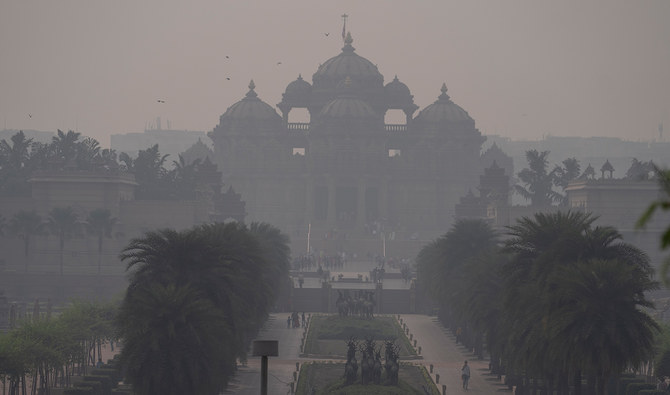
- Toxic smog has sickened tens of thousands of people in Lahore in recent months
- Experts demand greater cooperation among Pakistan, Bangladesh and India on smog
Pakistani actress Mahira Khan bags ‘Artist in Fashion’ award at EMIGALA ceremony in Dubai

- EMIGALA awards in Dubai acknowledge creative and innovative impacts in the beauty and fashion industries
- With a string of successful projects in film and TV, Mahira Khan is considered Pakistan’s most successful actress
ISLAMABAD: Pakistani actress Mahira Khan bagged the “Artist in Fashion” award at the recently held prestigious EMIGALA awards in Dubai, where some of the world’s biggest names in fashion and beauty worldwide were honored.
Khan was in attendance at the award ceremony held at Festival Bay in Dubai on Apr. 27 and 28. The event featured an array of A-list attendees such as Brazilian-American beauty personality Camila Coelho, Lebanese-British fashion entrepreneur Karen Wazen, Dubai Bling star Loujain Adada, social media sensation Narins Beauty, Indian singer Arjit Singh and Khan, among others.
The EMIGALA awards acknowledge the creative and innovative impacts of global celebrities in the realms of beauty and fashion.
“The Artist in Fashion, Mahira Khan,” Emi Gala Awards wrote on Instagram with a picture of Khan posing with her trophy on Monday.
Khan is counted among Pakistan’s most prolific actresses, gaining widespread recognition for her work in her country’s entertainment industry. The Pakistani actress became a household name after a string of successful drama serials following which she forayed into movies and made her mark across the border in India.
She had her Bollywood debut opposite iconic actor Shah Rukh Khan in a crime action film, “Raees,” which was released in 2017. The Pakistani celebrity was also working on other Indian movie projects, though they could not take off when relations between the two countries deteriorated in 2016 after an Indian army brigade headquarters came under attack in Uri. The administration in New Delhi suspected Pakistan’s involvement which was denied by officials in Islamabad.
In 2021 Khan achieved another milestone when she debuted at the Cannes Film Festival, representing L’Oreal Paris Hair in her country. She has also represented various renowned local brands such as Elan, Zohra Rahman, and Menahel and Mehreen.
Death toll from heavy rains in northwestern Pakistan surges to 92
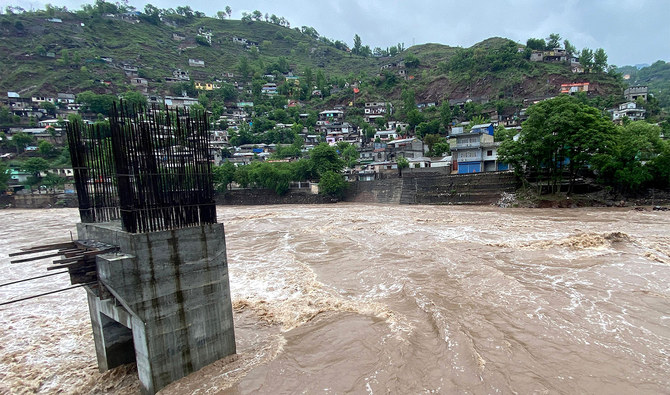
- Heavy rains in Pakistan’s northwest have injured 110, destroyed 4,200 houses since Apr. 10, says authority
- Prone to natural disasters, Pakistan consistently ranks among countries most affected by impacts of climate change
PESHAWAR: The death toll from rain-related incidents in Pakistan’s northwestern Khyber Pakhtunkhwa (KP) province since Apr. 10 has surged to 92 while the number of injured has increased to 116, a spokesperson of the Provincial Disaster Management Authority (PDMA) confirmed on Tuesday.
The rains which began on Apr. 10 have destroyed 4,200 houses and damaged 5,900 others, PDMA spokesperson Anwar Shehzad shared. At least 17 people have been killed and 23 injured in rain-related incidents over the past three days, as per data from the PDMA’s latest report on Tuesday.
The report said the 17 dead included nine men, three women and five children while the 23 injured included nine men, three women and 11 children. Deaths and financial losses due to heavy rains were reported in Bajaur, Swat, Mansehra, Battagram, Dir Lower, Malakand, Lakki Marwat, Shangla, Mohmand and South Waziristan districts, the PDMA report added.
“At least 92 persons have died including women, children, and elderly people while 116 others were wounded since Apr. 10 in incidents involving roof collapse and lightning in parts of the province,” Shehzad told Arab News.
The PDMA’s report said the authority, district administrations and relief teams are engaged in relief activities in the affected districts. “The PDMA has also directed district administrations of the affected districts to provide immediate financial support to the victims,” it added.
Pakistan has received heavy rains this month that have triggered landslides and flash floods in several parts of the country.
The eastern province of Punjab has reported 21 lighting- and roof collapse-related deaths, while Balochistan, in the country’s southwest, reported at least 15 deaths this month from torrential rains.
In 2022, unprecedented rains swelled Pakistan’s rivers and at one point flooded a third of the country, killing 1,739 people. The floods also caused over $30 billion in damages, from which Pakistan is still trying to rebuild.
Pakistan has been prone to natural disasters and consistently ranks among the most severely affected countries in the world due to the effects of climate change.
Pakistani PM says IMF approval of $1.1 billion funding to bring economic stability
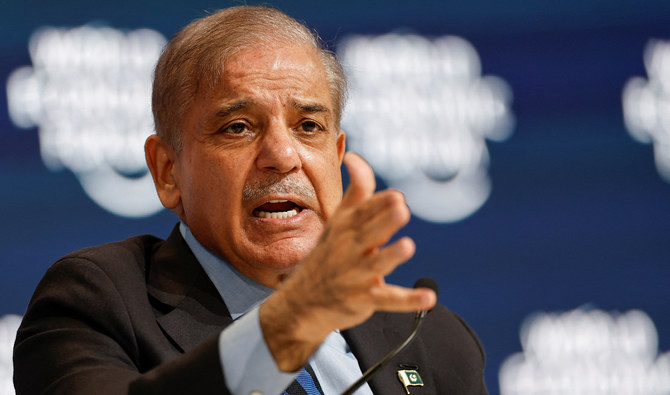
- Funding is last tranche of a $3 billion standby arrangement with the IMF secured last year
- Islamabad is seeking a new, larger long-term Extended Fund Facility agreement with the IMF
ISLAMABAD: Prime Minister Shehbaz Sharif said on Tuesday the International Monetary Fund’s approval of $1.1 billion in funding for Pakistan would bring economic stability, amid discussions for a new bailout loan.
The funding is the second and last tranche of a $3 billion standby arrangement with the IMF, which Islamabad secured last summer to help avert a sovereign default.
The approval came a day after Sharif discussed a new loan program with IMF Managing Director Kristalina Georgieva on the sidelines of the World Economic Forum in Riyadh.
“Sharif expressed his satisfaction over the release of the last financial tranche of the IMF today,” the Prime Minister’s Office (PMO) said in a statement. “Receiving the last tranche of 1.1 billion dollars from the IMF will bring more economic stability in Pakistan.”
This is the second Stand-by Arrangement (SBA) for short-term financial assistance that Pakistan has completed, the last one being in 2016 during the government of three-time PM Nawaz Sharif, who is Sharif’s elder brother.
“Bitter and difficult decisions were taken for the economic security of Pakistan, but their fruits are coming in the form of economic stability,” Sharif added about reforms under the IMF program.
The $350 billion economy faces a chronic balance of payments crisis, with nearly $24 billion to repay in debt and interest over the next fiscal year — three-time more than its central bank’s foreign currency reserves.
Islamabad is seeking a new, larger long-term Extended Fund Facility (EFF) agreement with the fund after the current standby arrangement expires this month, and continuing with necessary policy reforms to rein in deficits, build up reserves and manage soaring debt servicing.
Aramco acquires 40% stake in GO, marking first entry into Pakistani fuel retail market
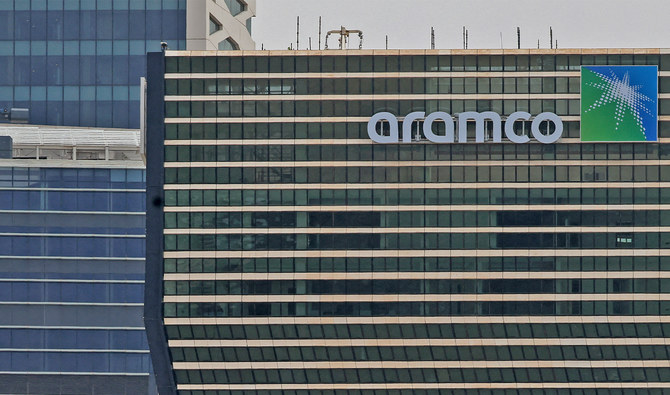
- Saudi oil giant Aramco inked agreement to buy 40 percent stake in Gas and Oil Pakistan Ltd. in December 2023
- Acquisition to bring much-needed foreign direct investment in Pakistan’s energy sector, says competition commission
KARACHI: The Competition Commission of Pakistan (CCP) this week approved Saudi oil giant Aramco’s decision to acquire a 40 percent stake in local company Gas & Oil Pakistan Ltd, officially marking the Saudi company’s entry into Pakistan’s fuels retail market.
Aramco and Gas signed the agreement to acquire 40 percent stake in Gas and Oil Pakistan Ltd., a licensed oil marketing company, in December 2023. Gas and Oil Pakistan Ltd. is involved in the procurement, storage, sale, and marketing of petroleum products and lubricants. It is also one of Pakistan’s largest retail and storage companies.
Aramco is a global integrated energy and chemicals company that produces approximately one in every eight barrels of the world’s oil supply and develops cutting-edge energy technologies. Aramco Asia Singapore Pte. Ltd., a Singaporean company wholly owned by Saudi Aramco, filed the pre-merger application with the CCP. It specializes in sales, marketing, procurement, logistics, and related services, with a focus on prospecting, exploring, drilling, extracting, processing, manufacturing, refining, and marketing hydrocarbon substances.
“The Competition Commission of Pakistan (CCP) approved a 40 percent equity stake acquisition in Gas & Oil Pakistan Ltd. (GO) by Aramco, a global leader in integrated energy and chemicals,” the CCP said in a statement on Monday. “This transaction marks Aramco’s first entry into Pakistan’s fuels retail market, underscoring its confidence in the country’s economic potential and its commitment to its growth.”
The CCP said it had authorized the merger after determining that the acquisition would not result in the acquirers’ “dominance” in the relevant market post-transaction.
“Aramco’s acquisition indicates a significant milestone in Pakistan’s energy sector, bringing advanced expertise and technology to the fuels retail market,” it said. “This development is expected to boost competition, elevate service standards, and provide consumers with a broader range of high-quality products.”
The CCP said the acquisition would help bring much-needed foreign direct investment in Pakistan’s energy sector, contributing to economic growth and development of the country.
In February 2019, Pakistan and Saudi Arabia inked investment deals totaling $21 billion during the visit of Saudi Crown Prince Mohammed Bin Salman to Islamabad. The agreements included about $10 billion for an Aramco oil refinery and $1 billion for a petrochemical complex at the strategic Gwadar Port in Balochistan.
Pakistan’s Prime Minister Shehbaz Sharif, who is in Saudi Arabia for a special meeting of the World Economic Forum, held meetings this week with Saudi Arabia’s ministers of energy, economy and planning, and environment, according to his office.
In a meeting with Saudi Energy Minister Prince Abdulaziz bin Salman on Monday evening, Sharif highlighted initiatives undertaken by Pakistan to facilitate investment in the energy sector. The Saudi side showed keen interest in Pakistan’s energy projects highlighted by Sharif, the Prime Minister’s Office (PMO) said.
The proposed projects included building new and improving existing energy infrastructure, increasing focus on renewable energy, and bringing efficiency across entire energy ecosystem in Pakistan, according to the statement.
Pakistan and Saudi Arabia enjoy strong trade, defense and cultural ties. The Kingdom is home to over 2.7 million Pakistani expatriates and serves as the top source of remittances to the cash-strapped South Asian country.
Both countries have been closely working to increase bilateral trade and investment deals, and the Kingdom recently reaffirmed its commitment to expedite an investment package worth $5 billion.
Abu Dhabi International Book Fair kicks off with Pakistani writers participating for first time
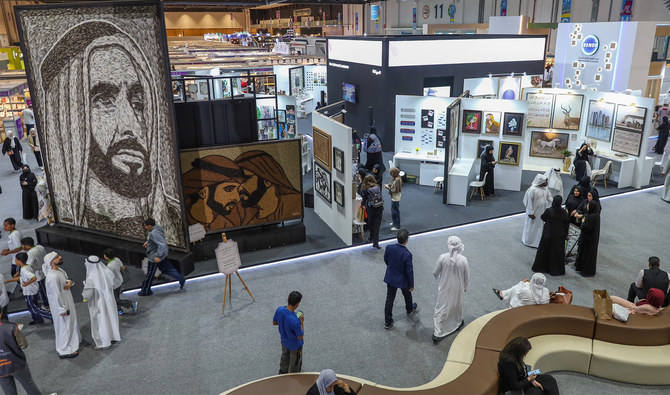
- Two panels on Pakistani literature and drama will speak at the international fair
- This year’s fair welcomes 145 new exhibitors and publishers from around the world
ISLAMABAD: The Abu Dhabi International Book Fair, considered one of the world’s most important cultural platforms, kicked off this week in the UAE capital with participation from Pakistani writers for the first time ever.
The book fair is an annual event that brings different writers together with the goal of promoting reading, diverse cultures and knowledge locally, regionally, and globally. Organizers of the fair say their aim is also to promote cultural exchange and dialogue between several nations.
It also brings together leaders from the publishing and creative industries every year, providing promising opportunities for those involved in this sector to form new partnerships, learn about the latest trends and developments and discuss its fundamental priorities.
“Pakistan is being represented at the Abu Dhabi Internationally Book Fair at @Adnec from April 29 to May 5,” the Pakistan Consulate General Dubai wrote on social media platform X on Monday.
Two sessions at the fair will feature participation from Pakistani writers. On May 1, a session titled: “The Pakistani Drama: Capturing Diverse Realities, Dreaming Many Dreams” will be moderated by journalist Mehwish Ajaz. It will feature panelists Amna Mufti, a renowned Urdu playwright and novelist, and Shazia Ali Khan, a UAE-based Urdu film screenplay writer.
The second session is scheduled to be held on May 3 and is titled: “Pakistani Fiction’s Connection with Past, Present & Future.” This session will be moderated by Mufti and will feature participation from Urdu novelist Tahira Iqbal and Osama Siddique, an English and Urdu novelist.
This year’s fair welcomes 145 new exhibitors and publishers this year along with 12 countries joining for the first time, namely Greece, Sri Lanka, Malaysia, Pakistan, Cyprus, Bulgaria, Mozambique, Uzbekistan, Tajikistan, Turkmenistan, Kyrgyzstan, and Indonesia.










